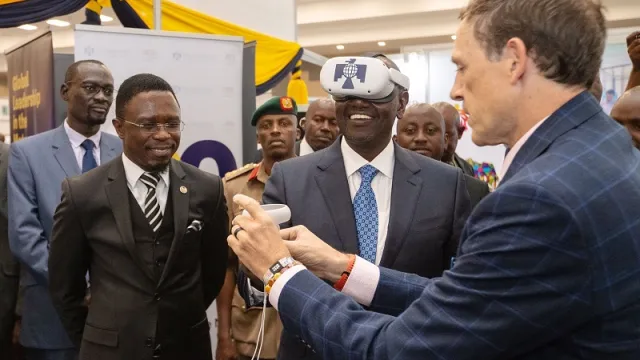In digital economy, Ruto sees path to creating jobs for Kenya's youth

In digital economy, Ruto sees path to creating jobs for Kenya's youth
It’s been slightly over a hundred days since Dr William Ruto became Kenya’s president and he still exudes the aura of a man who is getting a lay of the land to comprehend the country’s present disposition and size up the task ahead for his administration.
His engagements on Tuesday at the opening of the Kenya Innovation Week at Sarit Expo Centre, and the launch of Virtual Desktops at Kabete National Polytechnic gave him the opportunity to talk big about Kenya Kwanza’s digital economy policy.
Dr Ruto’s presentations in both venues indicated that digitisation will be the ultimate masterstroke to turnaround the country’s economic fortunes and generate employment for the youth.
“[Digitisation] is creating job opportunities in new markets and increasing employment in some existing occupations. Africa’s youth need the digital skills, access to technology and market space that are essential to drive on an increasingly digitised global economy.
“And I want to say that I am truly happy that we are having the conversation of our lifetime around technology, digitisation, and the digital economy,” he said.
ThePresident said that digitisation of government services and departments especially at the Judiciary has generated lots of viable gigs to youth such as data entry, transcription and other work in the tech space for online workers.
Read also: Young audience, digital channels powering Kenya’s media industry growth — PwC Africa
In the same breath, the President committed to the e-availability of all government services in six months, kicking the ball to ICT Cabinet Secretary Eliud Owalo’s court.
“As part of our strategy on what technology can achieve for our country and for our economy, Eliud Owalo and his team have express instructions that in the next six months we want to have digitised all government services.
“There are 300 government services now available online, that is not even 10 percent. But in six months we are going to engage the tech community, the people in the digital space to work with us as we digitise the 5,000 or so government services,” explained Dr Ruto.
For the medium term, the President looks to broaden internet infrastructure with 100,000 Kilometres of fiber optic cable rolled out to enhance the country’s workforce’s competencies, considering the lucrative money to be made in the global information technology scene.
Last month, the government has unveiled the first of the targeted 25,000 internet hotspots at City Market in Nairobi Central Business District that will see traders leverage free WiFi to grow their entreprises. "From here we will be launching similar programmes in other trade centres so that we can facilitate e-commerce,” ICT Cabinet Secretary Eliud Owalo said at the launch.
"We want to make sure every shopping centre will be on internet and will have a hotspot. We also want to lay our fibre network on the Kenya Power transmission lines so that 8.5 million homes that are connected to electricity are equally connected to the internet," the President noted.
“The global IT outsourcing market was valued at $320 billion in 2019. The market almost doubled by 2021 to $520 billion, and is expected to reach 680 billion in 2027.
“With that kind of digital transformation, organisations have become dependent on the success of creating applications and extensions that IT could provide and I dare say that Kenya must be technology ready in this huge $680 billion enterprise and it is the reason why I deliberately decided that this year’s Jamhuri Day is going to be profiled properly and themed as the innovation Jamhuri Day,” he explained.



